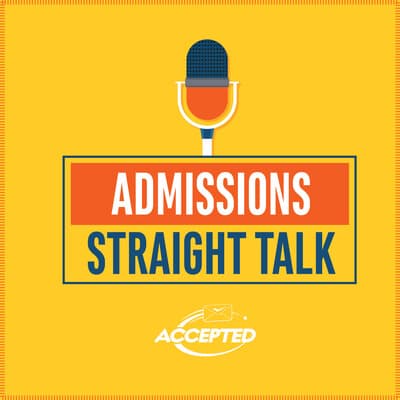Education
How can you write a stand-out personal statement? [Show summery] Dr. Mary Mahoney, Associate Professor of English at Elmira College and Accepted consultant, draws from her expertise in the medical humanities to deliver advice for writing a compelling personal statement. Listen to the show! A professor of English and Accepted admissions consultant shares top writing tips [Show notes] Our guest today, Dr. Mary Mahoney, is Associate Professor of English at Elmira College and a recent winner of the Barnhill essay contest at that college. She focuses much of her work on medical narrative and medical humanities. This work, in Dr. Mahoney's words, helps students understand and articulate why they want the medical career or healthcare career they are pursuing. In addition, Dr. Mahoney serves on the Elmira College Committee that reviews personal statements and provides feedback on interviews for Elmira students. Who can better help you tell your story through your personal statement? Can you tell us a little bit about your background? [2:07] The story that I tell that brings home a little bit of who I am and how I was raised is that I'm the youngest of five children in a pretty typical Irish family. When I came home from high school one day and told my mom that I wanted to be a poet, she said, "That's terrific, but not until after you go to nursing school." So that's what I did. I had a bunch of friends who were going into nursing school, and I had no other clear direction. I came from a family of math people. Auditors, accountants, all math people. And while I liked math, I really had no interest in doing anything like that. So nursing sounded good to me. I was an empathetic kind of teenager. So I went ahead and did that. I was a nurse by the time I was 19, and started working as a nurse when I was 19, but just continued going to school full-time over and over and over and over and over again, all the way through to the PhD. I didn't know that there would be a way to bridge the two, but I started writing about being a nurse when I was in my Master's program at Sarah Lawrence College and received a whole lot of encouragement to continue writing that way, because there was so little representation of a nurse's point of view in essays and stories and articles and things like that. People thought that it felt fresh, in the sense that it wasn't a writer writing about being a writer. It was a writer writing about being a nurse. I found a conference at Duke University, a conference on poetry and medicine, and it was all about the medical humanities. That was how I found out about the medical humanities, in addition to seeking out journals where my writing would be suitable. What are the medical humanities? [4:14] The medical humanities is an interdisciplinary focus on studying what living is, what life is, what it means to be a human, what it means to be a person, what it means to live in a body that gets sick. What it means to be mortal. What that means in relation to the people that we have relationships with, our cultures, our communities, and also, how all of that informs who we are as individuals, which brings up really abstract aspects to who we are that are frequently unseen in the communication between health professionals and patients. It's trying to bring the fuller, more comprehensive aspect of being human into the space of medicine and vice versa so that there's a much more reciprocal relationship between a practitioner and a patient. The distinction between “humanities” and “medical humanities” is that the focus has something to do with bodies that fail. Also, I think the medical humanities are really for anyone who might be interested in it, but I think the idea of it as a curriculum is that it fosters empathy and teaches how to recognize empathetic feelings or empathetic moments as meaningful for people who are headed for the health sciences as a profession.

